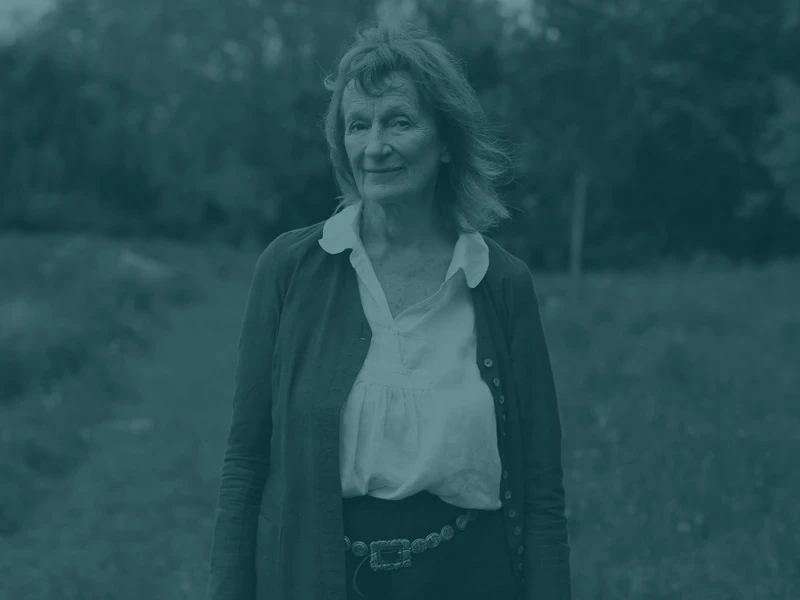In a mental health paradigm that has been traditionally dominated by male perspectives, the burgeoning field of psychedelic-assisted therapy within a Western medical context offers an opportunity for us to collectively strive towards something better. As practitioners in the psychedelic space and educators developing standards for psychedelic-assisted therapy training, it’s incumbent on everyone in the field to recognize the traditions and historical wisdom we are building upon; traditions that were oftentimes centered around and led by women. We are fortunate to have women across disciplines carrying the torch of pioneers past and forging a bright future for the unfolding psychedelic ecosystem ahead.
Modern iterations of psychedelic-assisted therapy— particularly medicalized approaches in North America— are largely built on the ancient Mesoamerican traditions of Indigenous communities like the Mazatec people of Mexico. Considered by many to be the bridge between Indigenous tradition and Western adoption of psilocybin-assisted therapy, María Sabina was a sage, healer, and leader within her Mazatec community. Her encounter with Robert Gordon Wasson marked a monumental shift in the research of psychedelic medicines in Western society. It is essential to note that while Sabina shared her wisdom with Wasson graciously, in her lifetime she was not granted the same recognition in the research community as Wasson. In fact, she carried a burden of stigma in her community for sharing wisdom traditions with outsiders, while Wasson was celebrated for his “discovery” of a powerful psychedelic mushroom.
Exemplary of the discord women experience regarding their contributions to society, this story is one of many that highlight the ample opportunity for Western medicine to integrate the wisdom of Indigenous medicine workers, while deconstructing the colonial legacy of medicine, psychedelic use, and mental health treatment in the West. Efforts to bring psychedelic-assisted therapy to the forefront of modern Western medicine must insist on the widespread adoption of historical reparations and the acknowledgment of women as leaders of this work.
Amanda Feilding: A Beacon of Leadership in Psychedelic Research
At Beckley Academy, we are fortunate to have a trailblazing woman at the head of our parent organization. Amanda Feilding, the founder of the Beckley Foundation, is a pivotal figure in psychedelic research and advocacy since 1998. Despite significant public stigma, Feilding’s work has been crucial in reopening scientific inquiry into the therapeutic potential of psychedelics. With an approach that blends rigorous scientific research with a deep understanding of policy and advocacy, Feilding has led the way for both changes in drug policy and cutting-edge breakthroughs in care delivery, training, drug development, and treatment. Her efforts have contributed significantly to the current re-emergence of psychedelic research and therapy, laying the groundwork for future generations of researchers and practitioners. She has done this all through her not-for-profit Beckley Foundation, which you can learn more about here.

“The aim has been to build our understanding of how these substances work, how they affect the brain and consciousness, and how they can be used for the betterment of humankind, in the treatment of illness, the expansion of awareness, and the enhancement of openness and creativity.” — Amanda Feilding
Unseen Leaders of Psychedelic Research
While it is important to highlight the pivotal women in the psychedelic movement like Amanda Feilding and María Sabina, many current and historical women are often overlooked. Mariavittoria Mangini’s 2021 article “Unseen Women in Psychedelic History” explores the lives and contributions of several key female figures whose impacts on psychedelic history have been overshadowed or attributed to their male counterparts.
Inequitable Attribution
Gertrude Paltin and Kay Parley both contributed valuable insights into psychedelic therapy yet remain almost unknown in the field. Paltin was a close research associate of Oscar Janiger, one of the well-known researchers in the 1970s psychedelic therapy research era. Paltin was acknowledged in a singular publication as a coauthor but her contribution to Dr. Janiger’s work is otherwise unrecognized and undocumented. She is a potent example of the women in psychedelic research whose contributions were rarely attributed in published work.
Join the Beckley Academy Mailing List
Relational Attunement
Kay Parley, RPN similarly played a key role in the development of standards and practices around psychedelic-assisted therapy, but goes largely unrecognized. Parley began her career in psychiatric nursing at Weyburn Mental Hospital in Saskatchewan, often referred to as “The Mental.” Her time there overlapped with Humphry Osmond, who was conducting experiments with LSD in hopes of discovering the biochemical determinants of mental disorders. Joining Osmond was Francis Huxley, Aldous Huxley’s nephew, who was researching the relationship between hospital layout and social interaction patterns. Given the environment in which she worked, Parley developed a curiosity about the value LSD held in parallel with a growing friendship with Francis Huxley.
Parley had an illuminating experience with LSD that would inform the next step of her career as an “LSD specialist” psychiatric nurse. She was recognized for her unique relational skill of attuning intensely and intuitively to a patient in an LSD session and providing guidance based on her personal experience. In 1965 she published an article, “Supporting the Patient on LSD Day” that Mangini notes could have been written today. Her article reflects what have come to be widespread components of modern psychedelic-assisted therapy. Parley identified the importance of rapport-building and preparation with the patient, the facilitators’ presence and intuitive disposition during the medicine session, and the importance of integrating the events of the day after the medicine session. Her article also discusses the importance of environmental setting, intention setting, and expectation tempering for a subject. However, despite the depth and ingenuity of her work, Parley’s contributions to the field more than 40 years prior to contemporary work remain almost entirely unknown.
Mangini emphasizes the need for greater recognition of women’s contributions to psychedelics, not only for historical accuracy but also to encourage a more inclusive and diverse understanding of the psychedelic experience. Mangini’s work sheds light on the complex systems of rules, roles, rituals, and professional language that have historically shaped and restricted the psychedelic discourse to a specific class, gender, and race. It is important to note that marginalized identities’ access to healthcare beyond the psychedelic space has been, and remains, inequitable. Women often avoid seeking treatment as a result of the health disparities and challenges ingrained in much of our healthcare system. Mental and physical health challenges that impact women, like postpartum depression, hormone imbalances, and domestic violence are often not taken seriously by male practitioners– resulting in widespread distrust of the medical system. Looking towards the future we must collectively strive to create a new paradigm for healthcare. By bringing forward the stories of women who have been instrumental in the development of psychedelic science, culture, and therapy, we can collectively advocate for a reevaluation of the narrative that has long marginalized their contributions.
Towards a Future of Equitable Psychedelic Education
At Beckley Academy, we work to embody the courage and passion of pioneering women not just in the psychedelic space, but in academia in general. It’s important to develop an approach to psychedelic-assisted therapy education centered around equitable access, trauma- and culture-informed content, and heart-centered care. The Beckley Academy team elevates the voices of women through the intentional development of staff, facilitators, and thought-leaders. Our course offerings and research initiatives would not exist without the thought leadership and execution of our co-founding team members Deborah Gardner and Shirelle Noble, and course facilitators Danielle M. Herrera, LMFT, Karina Sergi, LMFT, Mary Sanders, LCSW, and Sara Gael Beauregard, LPC. Our two course offerings, Relational Psychedelic-Assisted Therapy _and Essentials of Psychedelic-Care _are informed by the wisdom of women defining the new wave of PAT research, like consultants and contributors such as Tatiana Santini RP, RCC, Gita Vaid, MD, Monnica Williams PhD & Psychologist, and Michelle Baker Jones, Psychotherapist. Each contributor brings a unique background and specialization, contributing to our collective mission of expanding knowledge and practice in psychedelic-assisted therapy. For more detailed information on each member’s contributions and backgrounds, please visit the Beckley Academy’s About page here.
Interested in learning more?
Schedule time with our team today to take the next step in the growth of your psychedelic-assisted therapy practice.


